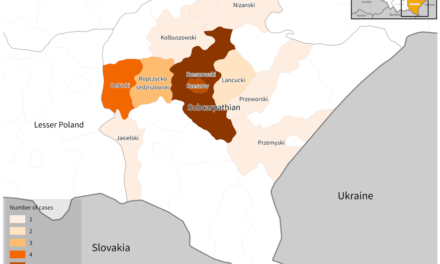London, August 30, 2024 – Women suffering from endometriosis, a chronic gynecological disease, face a 35% higher risk of severe heart attack, according to a groundbreaking study unveiled today at the European Cardiology Congress in London. The study, conducted by Danish researchers, underscores the need for heightened cardiovascular awareness in women with endometriosis, a condition that affects millions globally.
Endometriosis occurs when tissue similar to the lining of the uterus grows outside of it, such as in the ovaries or fallopian tubes. This condition, predominantly seen in women between the ages of 30 and 40, is known for causing severe pelvic pain and abnormal menstrual flow. While treatment options are available to manage symptoms, there is currently no cure or preventive measure for the disease.
Historically, cardiovascular disease (CVD) has been perceived as predominantly affecting men. However, the findings of this new study challenge that notion, revealing that women with endometriosis not only have a 35% increased risk of acute myocardial infarction (heart attack) but also face a 20% higher risk of ischemic stroke compared to women without the condition. The study further revealed that the 40-year cumulative incidence of heart attacks and strokes in women with endometriosis was 17.5% and 15.3%, respectively.
“For decades, cardiovascular disease has been thought of as a man’s disease, with risk factors often evaluated from a male perspective,” said Dr. Eva Havers-Borgersen, the study’s lead author from Rigshospitalet Copenhagen University Hospital. “Yet, one in three women die from CVD, and one in 10 women suffer from endometriosis. Our results suggest that it may be time to routinely consider the risk of CVD in women with endometriosis.”
The research drew on extensive data from Danish registries, encompassing women diagnosed with endometriosis between 1977 and 2021. In total, the study analyzed data from 60,508 women with endometriosis and 242,032 matched controls, with the follow-up period extending up to 45 years and a median duration of 16 years.
Beyond the increased risk of heart attack and stroke, the study also indicated that women with endometriosis might be more susceptible to arrhythmias and heart failure. This discovery has prompted researchers to advocate for routine cardiovascular risk assessments for women with endometriosis, incorporating female-specific factors into cardiovascular risk prediction models.
As this research is presented at the European Cardiology Congress, it serves as a crucial reminder of the importance of gender-specific considerations in healthcare, particularly in the context of cardiovascular disease. With these new insights, medical professionals may soon begin to approach endometriosis with a more comprehensive understanding of its broader health implications.












